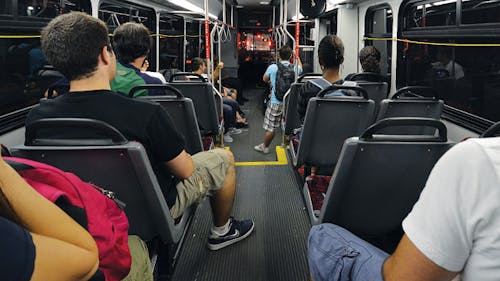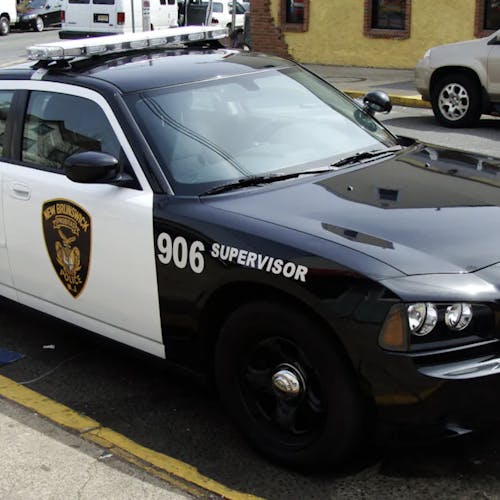Students express issues with new buses

As the University’s Department of Transportation Services transitions into a relationship with bus service provider First Transit, students are noticing some changes.
The University switched from Academy Bus Company to First Transit early last semester and the buses have been running since July, said Jack Molenaar, director of the Department of Transportation Services.
“We had a very small time for turn around, there are some bumps because of the transition and it being September, our busiest month,” he said.
Some students are upset with the punctuality of the buses, which they notice when waiting for a bus to take to class.
“NextBus seems a lot less accurate — the buses don’t come when the board says they are coming,” said Mike Harris, a School of Engineering sophomore. “Something seems different.”
Amanda Lewis, a School of Arts and Sciences sophomore, agreed that the buses have been running late.
“They’re never on time and wait too long at some stops — a lot of people think so,” she said. “The buses are OK, but most of the time I don’t particularly like them.”
Other students are adjusting to the automated stop announcements, a feature added to the buses.
“The announcements are useful, but after the first week or so, it gets a little annoying having to hear that,” said Nikhil Guddeti, a School of Arts and Sciences junior.
Alice Ree, a School of Business sophomore, agreed but said the stop announcements are helpful at night and for first-year students.
“It’s convenient to see your location at night and good for freshmen, but it’s excessive,” she said. “It’s hard to be on the phone on the bus because of the announcements.”
But the stop announcements are required for all buses under the Americans with Disabilities Act and will stay on the buses from now on, Molenaar said.
“The announcements are for blind people, and we always have to have them,” he said. “The scrolling announcements are helpful for a deaf person. All the up-to-date transit [vehicles] have them, just like subways in New York.”
Molenaar and the members of the Department of Transportation Services are happy to have automated stop announcements on buses.
“We love the new stop announcements,” he said. “They’re helpful for new riders and visitors. [Last year] the drivers were supposed to make announcements, but some weren’t very good at it.”
Some students have also noticed the buses seem less crowded because of the new interior and seating arrangement.
“The interior is better with the red seats and the buses fit more people,” Ree said.
Molenaar said the Academy buses had seating on the lowest level that did not run along the windows and sides, which took up space where people can now stand.
“First Transit owns the buses, and we requested that to allow for easier loading and unloading,” he said. “They wanted to know how to meet our wants. They purposely put red fabric on the seats.”
Jamie Mount, an Ernest Mario School of Pharmacy senior, said the bus drivers have been unfriendly while trying to keep the buses less crowded.
“They’re being stricter about how many people they’re allowing on the buses,” she said. “A driver was trying to close the door on people to stop them from getting on. It’s rude to close the door while someone’s getting on when there’s more than enough room for everyone to fit.”
Of the 110 employees driving the buses, only 30 were Academy bus drivers who switched over to First Transit. This leaves room for issues like getting lost or improper behavior, Molenaar said.
“Training issues always happen, and we ask the provider to remove the driver if they aren’t behaving properly,” he said. “We’re working through the issues, but they had training all summer long.”
Molenaar also said the issue of bunching, where multiples of buses with the same routes arrive at the same time, is being dealt with.
“More people are driving around the first week of classes, so it creates excess traffic,” he said. “We had the rain to deal with last week, which is not fun for anyone. We have more buses than ever, and we’re working with the provider because we don’t like bunching either.”
Molenaar also said students who are unhappy with the buses can check out an environmentally friendly alternative with the department’s new Bike Rental Pilot Program at bikes.rutgers.edu.
“Buses are expensive, bicycles make everything better,” he said. “Imagine 10 more people off the bus — it’s a small percentage, but it could really change the dynamic of New Brunswick."



